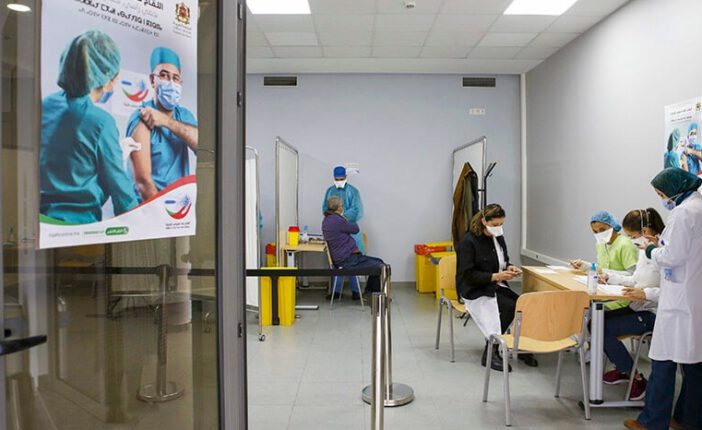The North Africa Post
Several European media outlets have expressed admiration for Morocco’s vaccination campaign, which enabled so far to inoculate 4.17 million people with 1.22 million having received the second dose.
Since its launch end of January in Morocco, the vaccination campaign is progressing at an “impressive pace”, with more than 4 million people vaccinated, French daily newspaper Le Monde wrote.
“More than 4 million Moroccans out of 36 million inhabitants have already received at least one dose of vaccine, an equivalent of 11% of the total population, compared to 6.4% in France,” the French Newspaper said in an article entitled “Covid-19: In Morocco, a vaccination campaign carried out with great success.”
The World Health Organization (WHO) hailed the country’s performance, considering Morocco among the top ten countries which succeeded in the vaccination challenge against Covid-19, Le Monde noted, adding that so far, Morocco is the country that has inoculated the largest number of its inhabitants in Africa.
The vaccination, free of charge and not mandatory, was initially reserved for health workers aged over 40, authorities, teachers aged over 45, and people aged over 75, and was extended to those aged over 60 in late February, it recalled.
“Everything is computerized. You just have to provide your ID number to get an appointment via SMS. We check people’s health condition before the inoculation,” Dr. Amina Aniba, who supervises a vaccination center in the Bourgogne neighborhood of Casablanca, told the newspaper’s correspondent in the city.
After a “slow beginning”, the vaccination campaign has gathered momentum. The awareness raising campaign themed “I protect myself, I protect my country”, launched by the Ministry of Health, and the prospects to end economic stagnation caused by the health crisis have pushed Moroccans to register in huge numbers.
Like other countries, Morocco may however face the risk of shortage of doses, though it started negotiating contracts with several laboratories, notably in China, at a very early stage, the media noted.
To bounce back, Rabat turned to other suppliers, the newspaper said, noting that in recent weeks, the national immunization committee has been exploring new avenues of supply.
Actually, Morocco which has so far received 8.5 million doses of anti-Covid-19 vaccines – 7 million doses of the vaccine developed by the AstraZeneca laboratory in India and 1.5 million doses of Chinese Sinopharm – is going to receive 1 million doses in two stages, in March and April.
The announcement was made by Health Minister Khalid Ait Taleb in a statement to Spain’s EFE News Agency. “The delivery dates will depend on the Russian manufacturer which is flooded by orders from around the world,” said the minister.
Another French daily Ouest-France also highlighted Morocco’s successful vaccination campaign, which arouses admiration in France.
The daily drew a parallel between the accelerated progress of the vaccination campaign in the Kingdom and the slowness characterizing France’s campaign.
Perhaps France should be inspired by countries such as Morocco, Antoine Flahault, director of the Institute for Global Health at the University of Geneva, was quoted by the media as saying.
In the same vein, Spanish media described Morocco as a ‘Miracle Country’ for the notable success of its COVID-19 vaccine campaign.
Leading Spanish daily La Razon hailed the success of Morocco’s COVID-19 response as the EU’s own plan falls further and further behind schedule.
The Madrid-based daily stated that Morocco’s robust vaccination plan is the “most advanced in Africa” and one of the most successful in the world, noting that Morocco’s vaccine rollout trails Spain’s by only a couple hundred thousand doses, although it launched its campaign over a month later than the European country.
Daily La Vanguardia also presented Morocco as the African “miracle”, as it is leading the Covid-19 vaccination campaign in Africa, where so far only 11 countries have launched national vaccination campaigns.

POSTED BY NORTH AFRICA POST
North Africa Post’s news desk is composed of journalists and editors, who are constantly working to provide new and accurate stories to NAP readers.







